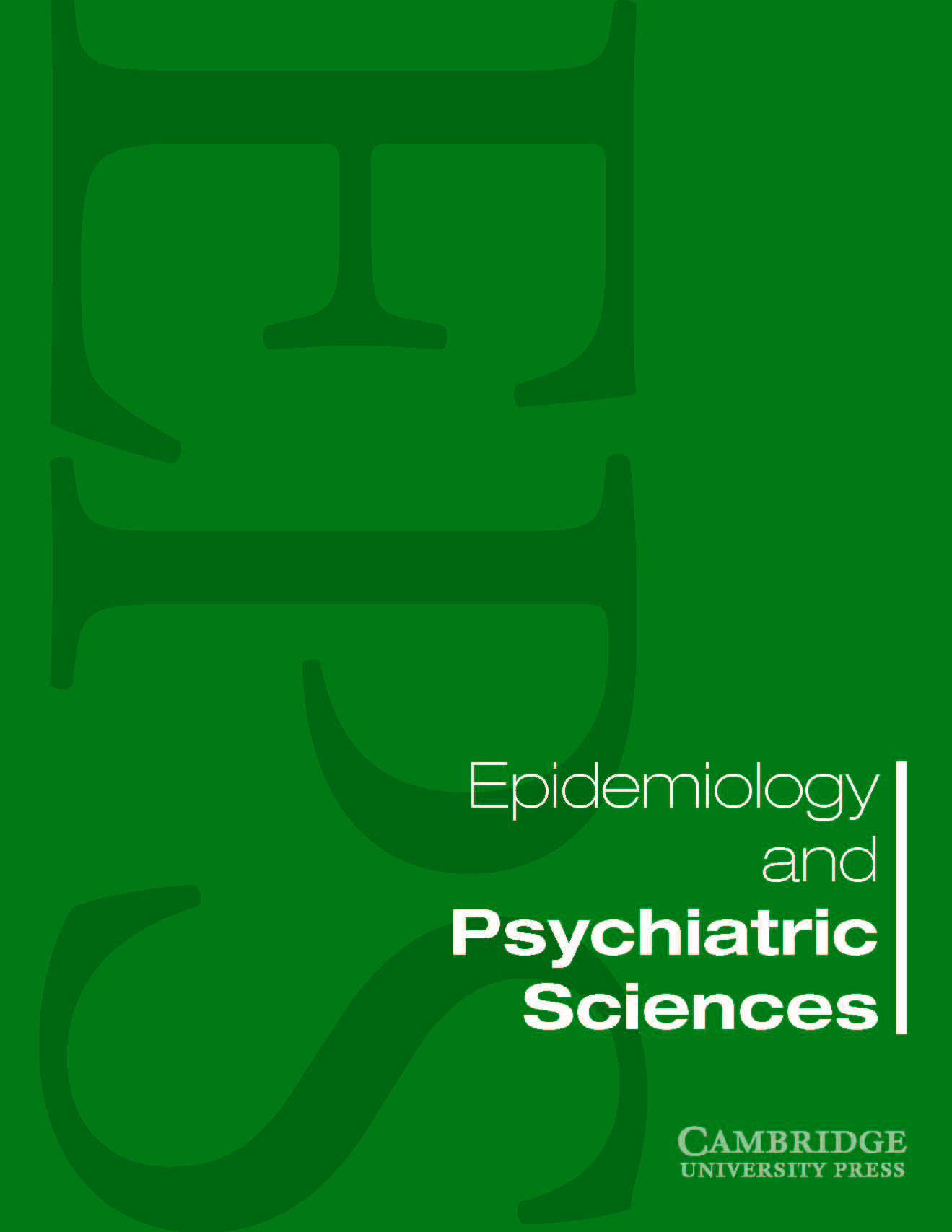LGBTQ+ 青年人中多重性小众化和性别扩张压力对心理健康的影响:潜类分析
IF 6.1
2区 医学
Q1 PSYCHIATRY
引用次数: 0
摘要
目的 在美国,女同性恋、男同性恋、双性恋、变性人、同性恋、双性人、无性人和其他在性取向上属于少数群体和具有性别扩张性(LGBTQ+)的年轻成年人面临着更大的心理健康不平等风险,包括与其性取向和性别认同相关的焦虑、抑郁和心理困扰挑战。由于与 LGBTQ+ 相关的少数群体压力和应激因素,如异性恋主义、家庭排斥、身份隐瞒和内化的恐同心理,LGBTQ+ 青年人可能会有独特的与性和性别少数群体相关的脆弱性经历。识别和理解与 LGBTQ+ 相关的特定少数群体压力体验及其在造成 LGBTQ+ 青壮年心理健康负担方面的复杂作用,可以为公共卫生工作提供信息,从而消除 LGBTQ+ 青壮年在心理健康方面所经历的不公平现象。因此,本研究试图根据 LGBTQ+ 青壮年的家庭异性恋经历、LGBTQ+ 相关家庭排斥、内化的 LGBTQ+ 恐惧症和 LGBTQ+ 身份隐瞒等经历,形成基于经验的 LGBTQ+ 青壮年风险特征(即潜在类别),然后确定衍生类别与心理困扰之间的关联。方法 我们利用 2020 年 5 月至 8 月间收集的非概率、横断面在线调查数据招募并注册了参与者(N = 482)。我们采用了三步潜类分析(LCA)方法来识别LGBTQ+相关少数群体压力子量表项目(即家庭异性恋经历、LGBTQ+相关家庭排斥、内化LGBTQ+恐惧症和LGBTQ+身份隐藏)的独特反应模式类别,并采用多叉逻辑回归来描述衍生类别与心理困扰之间的关联。结果 LCA 得出了五个不同的潜在类别:(1) 低少数群体压力;(2) LGBTQ+ 身份隐藏;(3) 家庭排斥;(4) 中等少数群体压力;(5) 高少数群体压力。与那些被归入低度少数群体压力等级的人相比,被归入高度和中度少数群体压力等级的人更有可能遭受中度和重度心理困扰。此外,与低度少数群体压力组的参与者相比,被归入 LGBTQ+ 身份隐藏组的参与者更有可能遭受严重的心理困扰。结论 家庭异性恋经历、与 LGBTQ+ 相关的家庭排斥、内化的 LGBTQ+ 恐惧症和 LGBTQ+ 身份隐瞒这四种结构已作为 LGBTQ+ 人员心理健康结果的预测因素被广泛研究,而我们的研究是首次揭示这些压力因素细微梯度的研究之一。此外,我们还发现,更严重的少数群体压力认同与更大的心理困扰相关。鉴于我们的研究结果以及之前已确定的少数群体压力因素对 LGBTQ+ 青年人心理健康的负面影响,我们的研究结果可以为研究、实践、政策改革和发展提供参考,从而预防和减少 LGBTQ+ 青年人心理健康的不公平现象。本文章由计算机程序翻译,如有差异,请以英文原文为准。
Mental health impact of multiple sexually minoritized and gender expansive stressors among LGBTQ+ young adults: a latent class analysis
Aims In the United States, lesbian, gay, bisexual, transgender, queer, intersex, asexual and other sexually minoritized and gender expansive (LGBTQ+) young adults are at increased risk for experiencing mental health inequities, including anxiety, depression and psychological distress-related challenges associated with their sexual and gender identities. LGBTQ+ young adults may have unique experiences of sexual and gender minority-related vulnerability because of LGBTQ+-related minority stress and stressors, such as heterosexism, family rejection, identity concealment and internalized homophobia. Identifying and understanding specific LGBTQ+-related minority stress experiences and their complex roles in contributing to mental health burden among LGBTQ+ young adults could inform public health efforts to eliminate mental health inequities experienced by LGBTQ+ young adults. Therefore, this study sought to form empirically based risk profiles (i.e., latent classes) of LGBTQ+ young adults based on their experiences with familial heterosexist experiences, LGBTQ+-related family rejection, internalized LGBTQ+-phobia and LGBTQ+ identity concealment, and then identify associations of derived classes with psychological distress. Methods We recruited and enrolled participants using nonprobability, cross-sectional online survey data collected between May and August 2020 (N = 482). We used a three-step latent class analysis (LCA) approach to identify unique classes of response patterns to LGBTQ+-related minority stressor subscale items (i.e., familial heterosexist experiences, LGBTQ+-related family rejection, internalized LGBTQ+-phobia and LGBTQ+ identity concealment), and multinomial logistic regression to characterize the associations between the derived classes and psychological distress. Results Five distinct latent classes emerged from the LCA: (1) low minority stress, (2) LGBTQ+ identity concealment, (3) family rejection, (4) moderate minority stress and (5) high minority stress. Participants who were classified in the high and moderate minority stress classes were more likely to suffer from moderate and severe psychological distress compared to those classified in the low minority stress class. Additionally, relative to those in the low minority stress class, participants who were classified in the LGBTQ+ identity concealment group were more likely to suffer from severe psychological distress. Conclusion Familial heterosexist experiences, LGBTQ+-related family rejection, internalized LGBTQ+-phobia and LGBTQ+ identity concealment are four constructs that have been extensively examined as predictors for mental health outcomes among LGBTQ+ persons, and our study is among the first to reveal nuanced gradients of these stressors. Additionally, we found that more severe endorsement of minority stress was associated with greater psychological distress. Given our study results and the previously established negative mental health impacts of minority stressors among LGBTQ+ young adults, findings from our study can inform research, practice, and policy reform and development that could prevent and reduce mental health inequities among LGBTQ+ young adults.
求助全文
通过发布文献求助,成功后即可免费获取论文全文。
去求助
来源期刊

Epidemiology and Psychiatric Sciences
PSYCHIATRY-
CiteScore
7.80
自引率
1.20%
发文量
121
审稿时长
>12 weeks
期刊介绍:
Epidemiology and Psychiatric Sciences is a prestigious international, peer-reviewed journal that has been publishing in Open Access format since 2020. Formerly known as Epidemiologia e Psichiatria Sociale and established in 1992 by Michele Tansella, the journal prioritizes highly relevant and innovative research articles and systematic reviews in the areas of public mental health and policy, mental health services and system research, as well as epidemiological and social psychiatry. Join us in advancing knowledge and understanding in these critical fields.
 求助内容:
求助内容: 应助结果提醒方式:
应助结果提醒方式:


